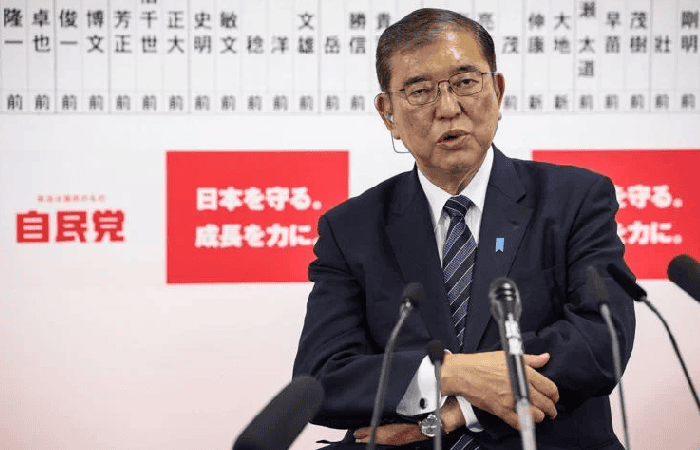Japan's ruling party loses support, which hurts the country's New prime minister

In Sunday's elections, Japanese voters issued a sharp rebuke to the nation's long-standing ruling party, causing the fourth-largest economy in the world to enter a rare period of political unpredictability.
For the first time in fifteen years, the Liberal Democratic Party of Japan, which has controlled the nation virtually continuously since 1955, has lost its parliamentary majority in the influential lower house.
Voters had been using the voting box to express their dissatisfaction with the government due to a large political funding scandal at the center of the LDP, rising living expenses, and inflation.
According to the national broadcaster NHK, the LDP and its coalition partner Komeito only managed to gain 215 of the 465 seats in the House of Representatives, falling short of the 233 seats required to achieve a majority.

Japan's politics experience an unusual dose of turmoil.
This dramatic vote comes after a political fundraising corruption scandal that exposed prominent politicians and cabinet officials of the ruling Liberal Democratic Party (LDP) last year, damaging the party's reputation and infuriating the public.
As people grappled with inflation, rising prices, stagnant salaries, and a slowing economy, dozens of LDP legislators were under investigation for embezzling millions of dollars from political fundraisers.
The LDP was ultimately punished at the polling station by an angry and weary populace that issued a clear message in Sunday's vote. A party that had controlled Japan virtually nonstop since 1955 suffered a devastating defeat when it lost its one-party majority in the influential lower chamber.
However, there was also no obvious victor. When the public sought a viable alternative, a fragmented opposition did not materialize.
Despite being badly damaged, the LDP managed to secure 191 seats, more than the Constitutional Democratic Party (CDP), the largest opposition party, which finished with 148 seats.
Voters who are tired of a party and officials they perceive as dishonest and unscrupulous seem to be the driving force behind this election. However, Jeffrey Hall, a lecturer at Kanda University of International Studies, stated that they do not wish to appoint a new head.
Final Thought
In an increasingly volatile Asia Pacific, the nation has long been regarded as a bulwark of political stability, a sanctuary for investors, and a trustworthy ally of the United States. Therefore, the uncertainty affects not just its own citizens but also its allies and neighbors.
-
A weak coalition at home won't help improve welfare for an aging population, boost wages, or turn around the economy.
-
The task of winning back the respect and confidence of a populace tired of politics will be even more difficult.




